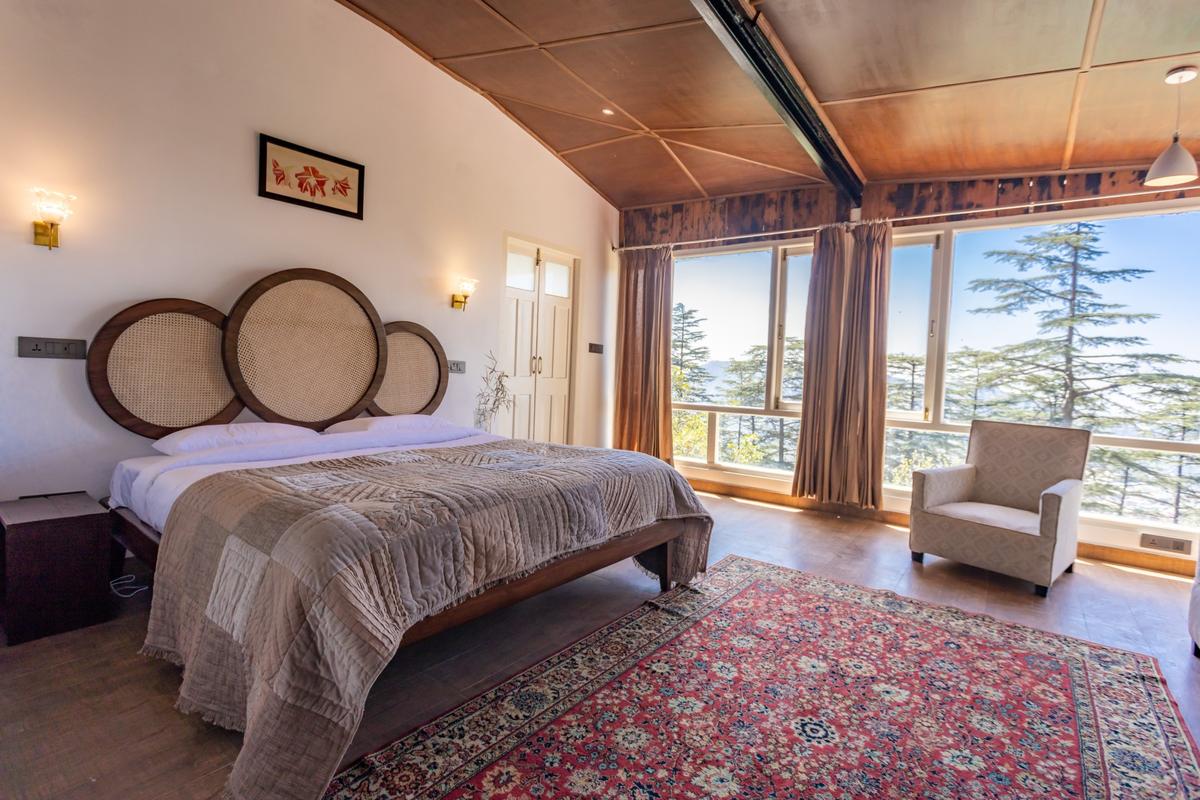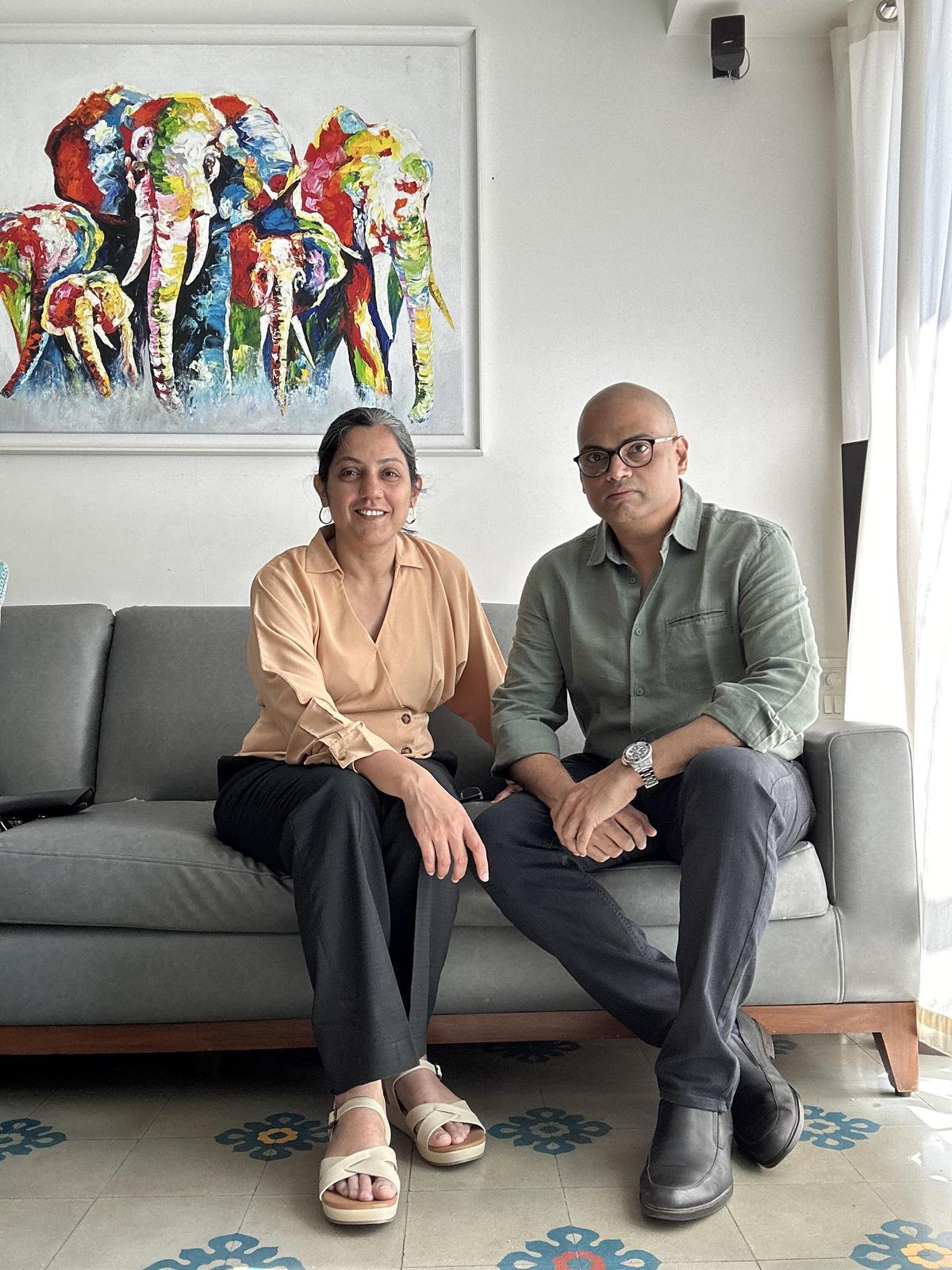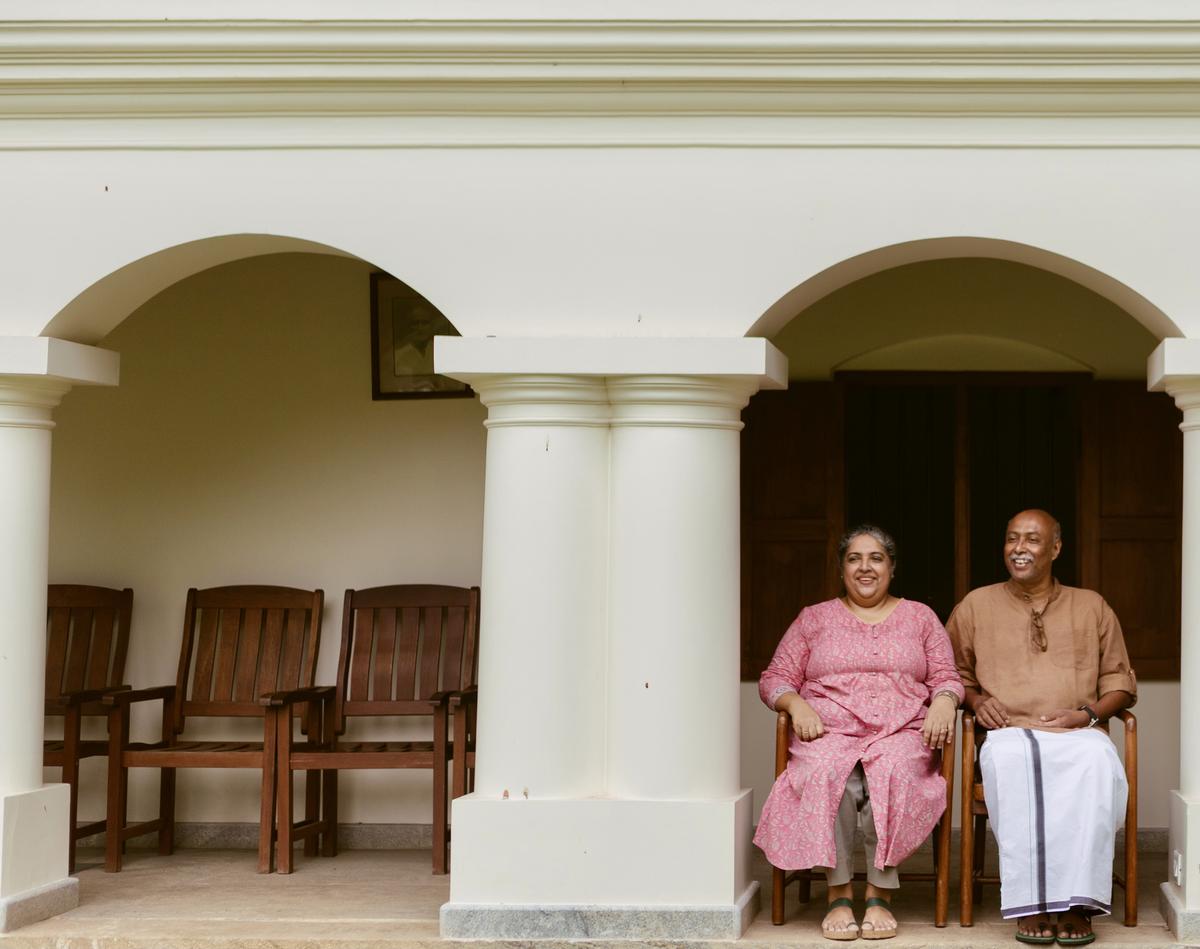In the early 1700s, Abraham Guerre came from Switzerland to work in Puducherry as a hospital administrator with the French East India Company. Now, you can check into his home for a relaxed, and unique, holiday.
In 2004 the once dilapidated property was given a new lease of life as Gratitude Heritage, a homestay with eight en-suite private bedrooms. “When my business partners Jyoti Cariappa and Kakoli Banerjee found the property, it was a crumbling husk of its former self,” says Siddarth Saikia, managing partner, Gratitude Consultants, which runs two properties in the Union Territory: Gratitude Heritage and Kariappa House.
Instead of demolishing it and building anew like many other places in Puducherry, the team decided to restore it with historically accurate methods and materials to retain its original essence, working with the Indian National Trust for Art and Cultural Heritage Conservation (INTACH), under the guidance of architect Ajit Koujalgi.
According to an economic impact research report published by the World Travel and Tourism Council, a global body representing private travel and tourism companies, domestic travellers in India spent ₹14.5 trillion in 2024. This indicates a clear preference among Indians to holiday on home shores. As more private heritage properties enter the sector, they offer visitors a unique window into local life.
Siddarth quit his corporate job in Gurgaon in 2017 and shifted to Puducherry to be part of the project. “Gratitude is not a hotel; it is also my home, as I live there,” he says. “We take the best aspects of a homestay but elevate the level of service and comfort to a point where a guest feels like they are coming back to their long-lost ancestral home.”
Nirvriti, tucked away in Kerala’s Kozhinjampara, Palakkad, follows a single key policy.
| Photo Credit:
SPECIAL ARRANGEMENT
“Every heritage home is special, because it gives a glimpse into history. It is not just the architecture, but also the artefacts that are passed down generations which carry stories with them,” says Tejas Parulekar, co-founder, SaffronStays. The Mumbai-based company operates a curated network of 325 handpicked, serviced private vacation homes, luxury villas, and estates across India.
Close to 10 heritage homes are also part of the company’s growing portfolio. The sector has flourished after COVID-19, driven by customers’ preference for offbeat destinations. This includes ASanjA, also known as the Hobbit Home of India, nestled in the Sahyadri Hills. The earth-sheltered villa is an oasis of luxury, with two pools and starlit bedrooms.
Explore the villages
A lot of heritage homes are now being built in small villages. Many of these homes are lying waste, where nobody is developing them. “Overtourism is concentrated in little pockets, and the infrastructure caves during the holiday periods. If we open up a house in a remote village, the locals get employed with us, grocers and essentials suppliers get an opportunity to grow,” says Ramit Sethi, who co-founded luxury villa stay brand Seclude Hotels with his friend Rohit Sethi.

A well-appointed room at Seclude Taraview, a bungalow in Shimla.
| Photo Credit:
SPECIAL ARRANGEMENT
Despite their novelty value, heritage homestays are not an easy prospect for hoteliers unless they are persistent. “Until now, the renovation of such properties would be feasible only for royal families, tycoons, or large corporate groups due to the huge budget layout. Materials like steel and cement did not exist when these structures were put up. You can’t install an air-conditioner, a bathroom, or even connect floors, because only wooden rafters connect them,” says Ramit.
Artistic restoration and practical modernity are essential. “Today’s traveller will love heritage, but not an old-looking bathroom. Heritage homes are solid, and their basic structure will survive if you don’t tamper with it. New elements like pipes for water and electricity conduits, have to be concealed under the floor, or placed in a way that doesn’t disturb the aesthetics,” he says. This creates a new ecosystem of local business, from builders to skilled site workers.
Parsi Manor at Matheran, restored and promoted by SaffronStays.
| Photo Credit:
SPECIAL ARRANGEMENT
Restoration projects
Tejas and her husband Devendra began SaffronStays 10 years ago initially as a tech platform for hotel visitors. This was to change after they took up the restoration of Parsi Manor, a 200-year-old colonial British mansion in Matheran, Maharashtra, at the owner’s request in 2015. “It was not in the best condition, but the owner was open to restoration, as long as we were in charge of it. Meals, featuring dishes from Parsi and Maharashtrian cuisine, are prepared by staff at the property, with breakfast being included in the tariff,” says Tejas adding that a night in Parsi Manor, which can house up to 12 guests in its four bedrooms, can cost upwards of ₹5,000.
The heritage suites at the 19th Century Abbott Milton Estate near the Ooty Golf Course in the hill station of Udhagamandalam, in the SaffronStays portfolio, is also a hit with visitors. The bungalow is situated on a 4.5-acre estate surrounded by lush greenery, where birdwatching, garden sit-outs, golf course trails and starlit bonfire nights are among the many activities that can keep guests busy. Chefs here serve Tamil, Sri Lankan, and English delicacies.
“Some of the homes, such as the Kurinji Estate in Kodaikanal, are over 150 years old and they usually set in the middle of a tea or coffee plantation. These are experiences you can’t get in regular tourism. Holidayers are willing to overlook the absence of air-conditioning in exchange for living in a heritage property, with its original furnishings,” says Tejas.
These holidays are getting more accessible as more homes open their doors to paying guests. Seclude Hotels has properties in Shimla, Palampur, Ramgarh, Mussoorie, Lansdowne, Kasauli, Goa and Delhi.
The brand’s business model relies on a chargeable service for refurbishing, restoring and recreating heritage homes, such as Seclude Bantony Cottage, a jungle lodge built in Nahan, Himachal Pradesh by the royal family of Sirmur and Seclude Falling Cashews, a restored 80-year-old Portuguese villa in Chorao, Goa.
Seclude’s Taraview, for instance, a refurbished mid-19th Century bungalow with four cosy rooms in Shimla, has been built using the traditional Dhajji wall technique, featuring earthquake-resistant walls that are made of timber frames filled with stone or brick, creating a patchwork effect.

Tejas and Devendra Parulekar, co-founders of SaffronStays.
Network like a local
Besides the luxury of living in a boutique space, a draw of these properties is the ability to get insider tips from local hosts. At Nirvriti, tucked away in Kerala’s Kozhinjampara, Palakkad, hosts Ria and Joseph Chakola follow a single key policy. “Irrespective of the number of guests, we allow only one booking at a time. We take only a maximum of four adults and two kids,” says Joseph.
The couple prefers to be present when guests visit. “We give out the property on rent primarily from mid-September to the end of March, which is also the holiday season for international travellers,” says Joseph. The villa also hosts private dining parties featuring an eclectic mix of dishes made by the Chakolas, for a maximum number of 15 guests.
The homestay’s main attraction is a palatial residence, constructed in 1865. Gifted to Joseph by his brother, Nirvriti was restored by architectural firms Space Art, Kozhikode and the Bengaluru-based Centre for Vernacular Architecture Trust, in two phases from 2016 onwards.
“The house was with us since 2004, but we hadn’t done much to it and were using a portion of it as a holiday home with the help of caretakers. It had a guest block and a service block separated by a courtyard. The revamped design blends seamlessly with the new structure. Our private living quarters became part of the service block, and we had spaces to serve food,” says Joseph.
He adds, “We started Nirvriti in 2021 by inviting our friends over to stay, and slowly it shifted to referrals from friends of friends. That’s when we added a small commercial edge to it. We enjoy the company of our guests, as much as they enjoy our hospitality.”

Nirvriti owners and hosts Ria and Joseph Chakola.
| Photo Credit:
SPECIAL ARRANGEMENT



